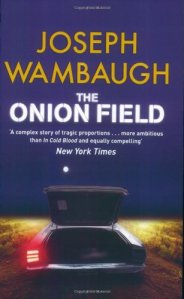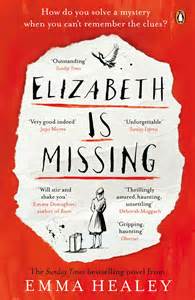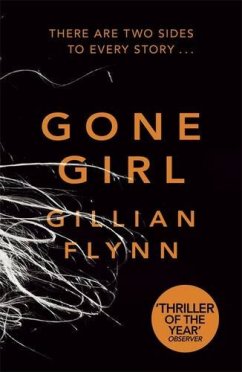 ‘Chop off my head and hawk it to the highest bidder. I’m the Anatomist’s Dream, did you know? That’s what they call me.’ … In a small salt-mining town, Philbert is born with a ‘taupe’, a disfiguring inflammation of the skull. Abandoned by his parents and with only a pet pig for company, he eventually finds refuge in a traveling carnival, Maulwerf’s Fair of Wonders, as it makes its annual migration across Germany bringing entertainment to a people beset by famine, repression and revolutionary ferment. Philbert finds a caring family in Herman the Fish Man, Lita the Dancing Dwarf, Frau Fettleheim the Fattest Woman in the World, and an assortment of ‘freak show’ artists, magicians and entertainers. But when Philbert meets Kwert Tospirologist and Teller of Signs he is persuaded to undergo examination by the renowned physician and craniometrist Dr Ullendorf, both Kwert and Philbert embark on an altogether darker and more perilous journey that will have far-reaching consequences for a whole nation.
‘Chop off my head and hawk it to the highest bidder. I’m the Anatomist’s Dream, did you know? That’s what they call me.’ … In a small salt-mining town, Philbert is born with a ‘taupe’, a disfiguring inflammation of the skull. Abandoned by his parents and with only a pet pig for company, he eventually finds refuge in a traveling carnival, Maulwerf’s Fair of Wonders, as it makes its annual migration across Germany bringing entertainment to a people beset by famine, repression and revolutionary ferment. Philbert finds a caring family in Herman the Fish Man, Lita the Dancing Dwarf, Frau Fettleheim the Fattest Woman in the World, and an assortment of ‘freak show’ artists, magicians and entertainers. But when Philbert meets Kwert Tospirologist and Teller of Signs he is persuaded to undergo examination by the renowned physician and craniometrist Dr Ullendorf, both Kwert and Philbert embark on an altogether darker and more perilous journey that will have far-reaching consequences for a whole nation.
It’s been a while since I’ve read a book with a fulfilling ending, so it was a wonderful feeling to be quite satisfied as I read the final paragraph. Personally, I loved this book from start to finish, and the writing style is simply exquisite. Philbert is an extraordinary character whose part in this play is both imperative and subtle in equal measures. He is the catalyst for nearly every main event that takes place in the novel, yet his actions and speech are featured sparingly. I’ve never read a book with such exceptional prose and content – a real winner for me!
A majority of the group found it to be a magical read and agreed that they’ve never quite read anything with a tone and style such as this. Although some members thought that the story needed to move on a little quicker at times, they generally thought that it was a captivating read and were genuinely interested in Philbert and the direction in which his adventures were heading. One aspect that most members agreed on was the unpredictability of the story and the twists and turns that it takes were very much a surprise, and guessing what would happen next was nigh on impossible.
As well as the story being very well developed, the characters were incredibly well formed and although they had unusual quirks and attributes they were all very relatable; especially Philbert. In fact, most of the group felt very warmly towards Philbert and were genuinely concerned about his life and the misfortunate events and predicaments in which he found himself. You could genuinely feel for both him and his pet pig!
However, it wasn’t quite for everyone. Although most members of the group thoroughly enjoyed the book we did have a member that thoroughly disliked it! The fanciful aspect was a little too much for my group member and even though it is a work of fiction they still found it hard to believe in the story and the predicaments in which the characters found themselves. On a whole it was enjoyed by most, but I’d be doing a disservice to the group if not all opinions were discussed.
I was a little late to organise a Q&A with the author before the meeting, but Clio kindly sent me an email with some interesting thoughts and comments about this novel, which I’ve shared below:
‘I don’t know how many people in your reading group are also writers, but it might be good for them to know that this was actually one of the first books I wrote. Only since I revisited it a couple of years ago did I manage to get out all the bugs and horrifying prose that poured out of me like the proverbial.
‘But what folk might find illuminating – especially if they’ve any medical background – is that initially this book started as an intellectual exercise. I knew I wanted to write, but wasn’t sure where to start. I’d not long read a prose poem by Phineas Fletcher – written around 1630 – called The Purple Island, a sort of anatomical treatise likening the body to a city state, and that sent me flying off to my Gray’s Anatomy, seeking out memorable phrases from its index, researching all the words, how they worked in different languages, in different phrases, their etymology formed my initial chapters on those researches – all long changed, but the clues are still in there if you know what you’re looking for.
‘As yet, there’s no sequel planned but I’m working on a sort of sister book that has very similar elements as The Anatomist’s Dream and in which Philbert pops up as a side character.’
Some of the group were intrigued to find out if there was to be a sequel so I hope that this covers it for you!
This was an incredibly well-written novel with interesting topics, places, characters and situations. If you like your history mixed with fact and a fanciful edge thrown in for good measure, then this is the book for you. A truly exceptional novel that must be read to be appreciated.
*The Anatomist’s Dream was long listed for the Bailey’s Women’s Prize for Fiction 2016*
 ing, cinematic crime thriller from Cilla and Rolf Börjlind, the scriptwriters behind Arne Dahl and the Swedish Wallander TV series.
ing, cinematic crime thriller from Cilla and Rolf Börjlind, the scriptwriters behind Arne Dahl and the Swedish Wallander TV series.






